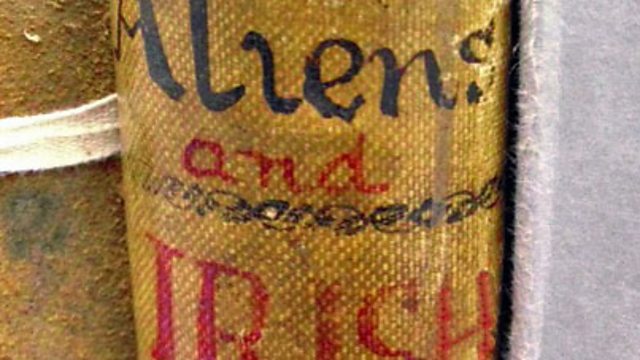Reading Gaol, Forbury Road: Internment for Aliens and Irish
Reading Gaol replaces criminals with enemy aliens and Irish political prisoners
With the advent of war and the need for labour; came a significant drop in the crime rate and by winter 1915 the government had come up with another use for many of its prisons, including Reading.
They were to become places of internment for men born in enemy nations or of foreign descent, who were considered a potential threat to national security and known as “aliens”.
The first aliens arrived at Reading Gaol from London’s Brixton Prison in January 1916. Most of them were not convicted criminals and were therefore allowed more freedom of movement and privileges than regular prisoners, such as being able to choose how to spend their time and even purchase food from the canteen.
There were up to 98 internees held in Reading, mainly German and Austrian but also Latin Americans, Hungarians and Belgians. Their occupations included barman, baker, doctor, tailor and engineer. The Nominal Register of Aliens kept by the prison and letters in the prison archive provide an insight into the men’s background and prison life during World War One.
In July 1916, they were joined by Irishmen who had been involved in the Easter Rising in Dublin and brought to Reading as political prisoners. The Irish were kept apart from the other internees and housed in the female wing of the prison, where they proceeded to set up their own community and continue their political campaigning from behind bars.
The final internees left Reading Gaol in October 1919, the prison closed and only reopened as a local prison in 1946. It became a Remand Centre and Young Offenders Institution in 1992 and closed completely in November 2013.
Location: HM Prison Reading, Forbury Road, Reading RG1 3HY
Image and extracts from the Reading Prison Archive courtesy of Berkshire Record Office
Duration:
This clip is from
Featured in...
![]()
�鶹�� Radio Berkshire—World War One At Home
Places in Berkshire that tell a story of World War One
More clips from World War One At Home
-
![]()
The loss of HMY Iolaire
Duration: 18:52
-
![]()
Scotland, Slamannan and the Argylls
Duration: 07:55
-
![]()
Scotland Museum of Edinburgh mourning dress
Duration: 06:17
-
![]()
Scotland Montrose 'GI Brides'
Duration: 06:41







